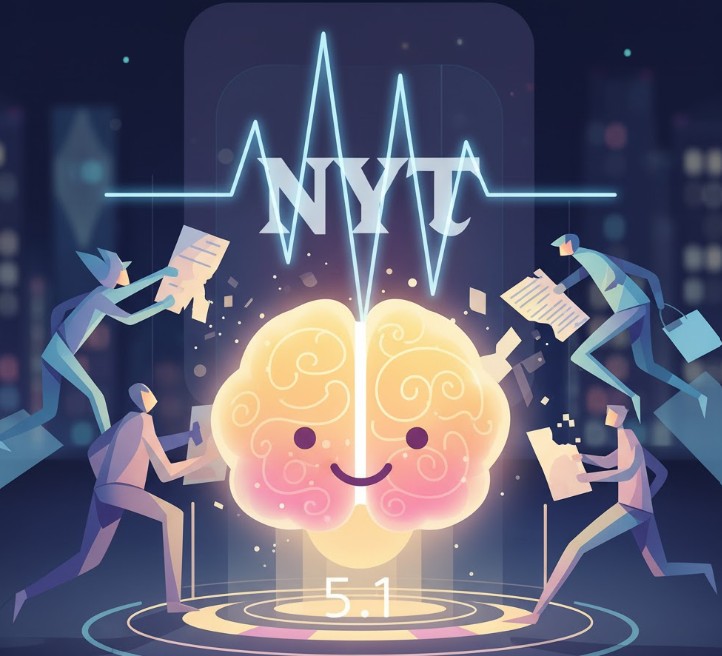OpenAI’s most recent update for its large language model, GPT-5.1, has been characterized as “warmer,” more intuitive, and more human-sounding. The update also brings forth the two new model classes called Instant and Thinking, designed to align better with user intent and context. Instant is about being very responsive and easy to have a conversation with, while Thinking is designed for deeper reasoning without giving up on complicated tasks.
Personality Choices Expanded Into Eight Styles
With GPT-5.1, OpenAI has created eight new preset personalities: Friendly, Candid, Quirky, Nerdy, and Cynical, to name a few. The user can therefore select or tweak the kind of experience they wish to interact with according to their mood or particular needs. These additions reflect OpenAI’s constant push to make the models feel less like a generic tool and more like a true customizable companion.
Increased Instruction-Adherence Reflects The User Feedback On The Preceding Model
This release came in response to user feedback that GPT-5 failed to address tone and context in interactive use. Many users considered the model cold or somewhat unintuitive. OpenAI states that GPT-5.1 mitigates those criticisms with better instruction adherence, clearer presentations, and a dyad of minimized hallucination level in testing.
The New Model Comes at A Time When OpenAI Is Facing Legal And Privacy Problems With NYT
OpenAI, of importance, is launching at a time when a legal row with The New York Times (NYT) is underway. The NYT has sought access to millions of ChatGPT user conversations as part of copyright litigation, raising some brute questions on privacy. In retaliation, OpenAI called the request as “over-broad” and anyway a compromise on user trust.
The timing underscores how product strategy and legal/ethical risk are now tightly intertwined in AI development.
What does this Mean for Users, Developers and Industry
For users, GPT‑5.1 offers a more conversational and customizable AI experience¬¬—a little more personal tone, more reliability and better flow to conversations. For developers, a broader toolbox for building apps that adapt to style and task type. For the industry, however, the NYT clash adds further complexity: model evolution must now consider data governance, copyright risk and transparency alongside performance. The acceleration of the balance between innovation and responsibility has never been more visible.
Also Read: Google Has Stopped Supporting Its First Generation of Nest Thermostats.
News Source: PCmag.com

